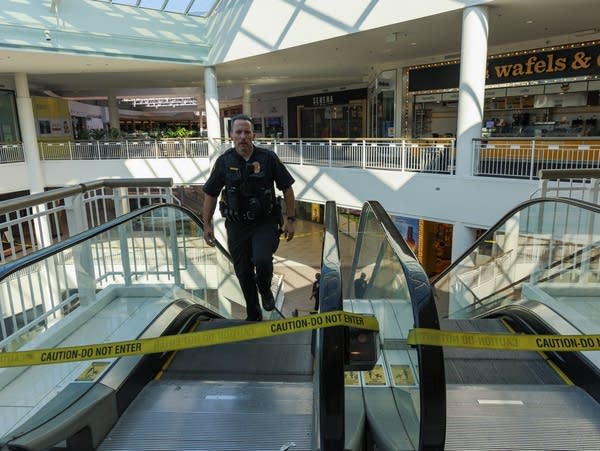Poll: Minnesota voters think crime is rising, yet feel safe near home

A police officer at the Mall of America after shots were fired last month.
Kerem Yücel | MPR News
Go Deeper.
Create an account or log in to save stories.
Like this?
Thanks for liking this story! We have added it to a list of your favorite stories.


